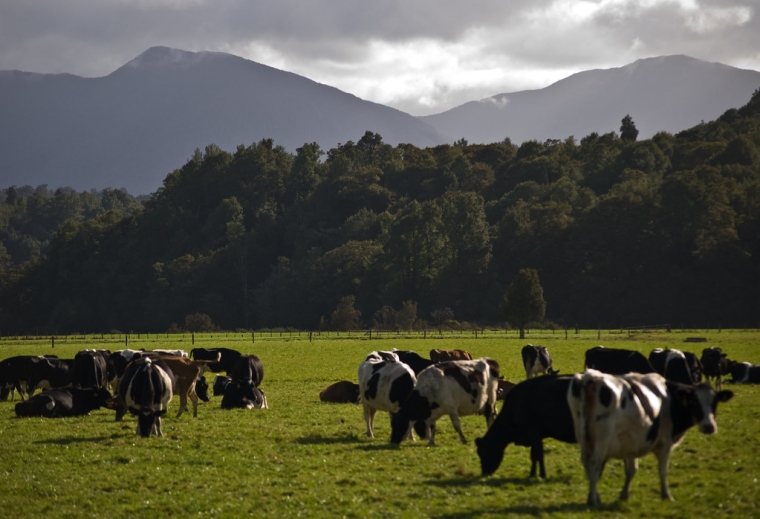
April brought mixed fortunes to the rural property market with an increase in the number of lifestyle blocks sold for the second month in a row while farm sales declined very slightly.
According to the Real Estate Institute of New Zealand, 1256 lifestyle blocks were sold over the three months to the end of April.
April was the second month in a row that sales have increased, on a rolling three month basis, since lifestyle sales hit a low of 1023 in February.
However the lifestyle market remains relatively subdued, with April's sales down 30% compared to April last year.
The median selling price of lifestyle blocks also increased for the second month in a row to $975,000, but remains down by $102,000 (9.5%) compared to April last year.
The lift in the median price was entirely driven by farmlet-style properties, with their median price rising from $1.1 million in February and March to $1,112,500 in in April, while the median prices of bare land lifestyle blocks was unchanged at $390,000.
However while there was some improvement in the lifestyle block market in April there was barely any change in farm sales, with 237 farms of all types sold over the three months to April compared to 238 in the three months to March.
That means farm sales are down by 48% compared to the same time last year.
There was not any significant movement is sales by farm types last month, with sales of dairy, finishing, grazing and horticultural properties all remaining at low levels.
The REINZ All Farm Price Index, which adjusts for changes in the mix of farms sold by size, type and location, was down 0.5% over the three months to April compared to the three months to March, and down 8.1% compared to the three months to April last year.
REINZ rural spokesperson Shane O'Brien said recent downward movement in the price of carbon credits had affected demand for land to be converted to forestry.
"The demand for land for timber and carbon has reduced on the back of the recent policy announcements by central government and the fall in the New Zealand unit price for carbon and we believe this is likely to remain for much of 2023," O'Brien said.
The reduction in Fonterra's farmgate price also meant many existing farmers were not looking at additional acquisitions, he said.
The comment stream on this story is now closed.
- You can have articles like this delivered directly to your inbox via our free Property Newsletter. We send it out 3-5 times a week with all of our property-related news, including auction results, interest rate movements and market commentary and analysis. To start receiving them, register here (it's free) and when approved you can select any of our free email newsletters.
9 Comments
I have noticed a few sold signs around Wainui, Waitoki etc just north of Auckland. The real quality is still selling though probably 10% off peak.
The exec LSB is not so much in hot demand like it was. No premium prices for standard land
There is talk around the traps of rural subdivision, yeah nah.
Many thinking the same as you IT GUY. Get some land and produce from it, be it cattle, horses, tourism etc. Trade in the city life for greener pastures
It has always been popular for those who want there horses closer to them... The rain is putting people off, but the lifestyle remains for those who just like space and a bit of land. Many last 2-3 years cannot put in the hard yards.... It's expensive to get anyone to do anything you cannot do yourself.
Not if you're actually living rurally. If you're in a slightly large block adjacent to a large city, then yeah you're going to pay inflated city prices.
The farm market has gone dead. The few pre approvals left under the old rules for forestry purchases are being carefully hoarded. And the local guys relying on cutting a couple of lifestyle blocks off to make the numbers work don't want to ( can't ) cover the holding costs at the new interest rate levels.
Dairy and meat farmers are nervous the China bounce back we were assured was coming hasn't arrived and our schedules and Fonterra forecasts are becoming less enthusiastic.
If I was an economist I would say steady as she goes with a bias to the downside.
Buckle up for the ride. I don’t think it will be pretty.
Whats happening Jack, you are usually so positive
Just what I’m seeing in overseas markets. Demand is not as strong and we are seeing customers not wanting to pay higher prices, as we all need with higher costs. Their customers are being very cautious and careful, especially in China, having been locked down and used up spare cash to survive. UK is a mess. I’ve lived through high inflation and it will clean out those who are weak or not equipped to survive hard times and it’s not easy to tame. We haven’t had a real hard time for a long time and everyone’s running out of easy money to throw around as inflation has appeared, unlike post GFC.
I maybe wrong but time to be careful I feel.

We welcome your comments below. If you are not already registered, please register to comment
Remember we welcome robust, respectful and insightful debate. We don't welcome abusive or defamatory comments and will de-register those repeatedly making such comments. Our current comment policy is here.